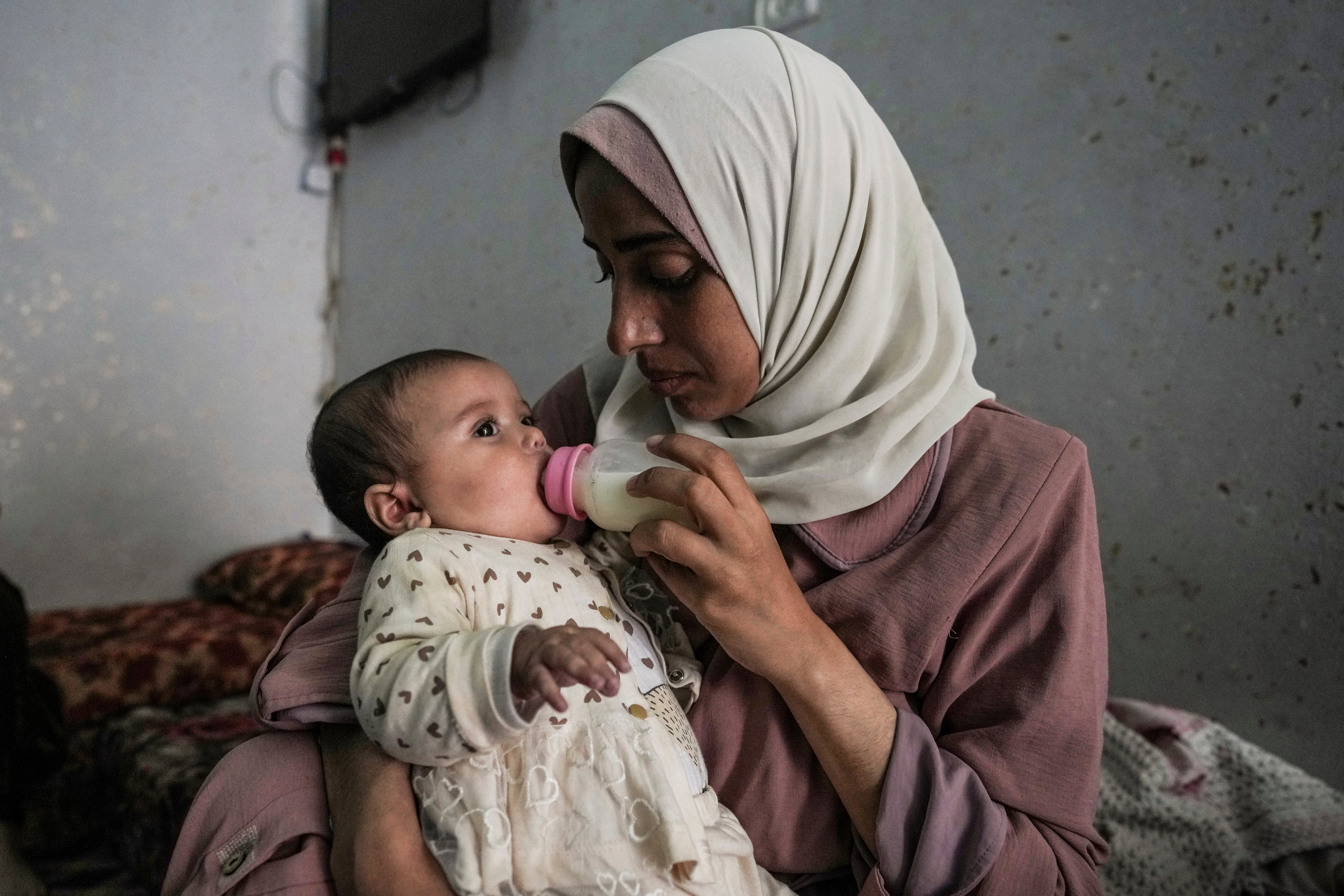We must find a way to give peace a chance in Gaza
Editorial: With little end in sight to Israel’s retaliations for the 7 October attacks, the next six months appear just as gloomy for the Palestinians as the last. The West must exert maximum leverage to make Benjamin Netanyahu change his course now

Six months after the atrocities committed by Hamas in southern Israel, it is right and proper to remember the victims of that terrorism. Some 1,139 Israelis and foreign nationals were murdered, and around 250 people were taken hostage. It stands as the worst antisemitic attack since the Holocaust, and as a continuing reminder that Hamas remains committed to the elimination of the state of Israel and the killing of Jews.
There is obviously much context to be added to that, but that ideology is one reason why a lasting peace has proved so elusive in the region. Even in recent weeks, Hamas has not proved wholly cooperative during attempts at peace talks brokered by Egypt, Qatar and the United States.
It is, then, a moment for reflection and equally a moment to memorialise the more than 33,000 Palestinians, many of them children and babies who, according to the Hamas-run health ministry, have died in this conflict.
As has been noted many times, while Israel had a right to defend itself after 7 October, it never had the right to ignore international humanitarian law and to act in a disproportionate, callous fashion. Even now, the Israeli government plans a further assault on Rafah, probably to commence soon after the end of Ramadan, and yet more thousands will perish.
Only the sheer pressure of international outrage over the killing of aid workers has forced Benjamin Netanyahu’s administration to open up aid corridors to avert widespread famine. That is something: yet almost the entire 2.7 million population of Gaza has been displaced, some several times, and scarcely a family hasn’t been traumatised by the loss of loved ones.
It has been a brutal war that has earned Israel an indictment for genocide at the International Court of Justice, and left the state of Israel isolated and less secure rather than more secure. Israel claims to have taken out some 12,000 terrorist “combatants”, yet even if that figure is accurate, the war has surely created a multiple of that in aggrieved youths seeking to avenge what has been done to their families and to their own homeland.
So we know that the past six months have brought violence to the region on an unprecedented scale. Israel was indeed wrong to ignore the prescient words of president Joe Biden soon after the 7 October attacks. “Justice must be done,” Mr Biden said. “But I caution that, while you feel that rage, don’t be consumed by it. After 9/11, we were enraged in the United States. While we sought justice and got justice, we also made mistakes.”
What will the next six months bring?
If Mr Netanyahu has anything to do with it the answer may be “more of the same”. The Israeli prime minister sometimes gives the impression that he will only end military operations when there are no more buildings in Gaza left to bomb. The disturbing truth, from the point of view of the welfare and safety of the people of Israel and of the Occupied Palestinian Territories, he has no peace plan and no vision for the future of the region.
He has explicitly ruled out the only practical option, the two-state solution, and left a vacuum where Palestinian statehood should be. From what can be discerned about his intentions, Gaza will be reduced to a kind of colonial protectorate, as well as the ceaseless encroachment of its territory by yet more illegal settlers.
The outlook is gloomy, and it cannot help but be so in the shadow of the past six months, and the decades of conflict, terror and injustices that have gone before. But peace has to start somewhere, and hope can be kept alive because as well as successive wars, the history of the region has also seen successful peace initiatives, and the normalisation of relations among formerly bitter enemies.
While the war in Gaza has spread disastrously to the Red Sea and brought America and Iran into further confrontation, it is notable that Hezbollah in Lebanon and the West Bank has not, on the whole, joined in with Hamas’s war. Hamas, for its part, has marked the six months since the atrocities by agreeing to join ceasefire talks in Egypt, a crucial step because, as is too often forgotten, ceasefires do have to be two-way affairs.
The fighting should end now, and the West should exert maximum leverage on Mr Netanyahu to that end, by making military supplies appropriately conditional – with the United States and Germany, the leading suppliers, taking the lead.
An equally effective source of pressure is building within Israel, which is the frustration and exhaustion of a population that sees its hostages still in captivity, and a war that cannot deliver lasting peace and security. At some point in the coming months, Israel’s people, parliamentarians and Mr Netanyahu’s coalition partners will surely attempt to drive Mr Netanyahu from office.
For now, he must take ultimate responsibility for the intelligence and security failures that allowed the outrages on 7 October to happen – and for the way he has conducted the war that followed. It will be for history to judge Mr Netanyahu for having become such an obstacle to peace.
Join our commenting forum
Join thought-provoking conversations, follow other Independent readers and see their replies
Comments
Bookmark popover
Removed from bookmarks